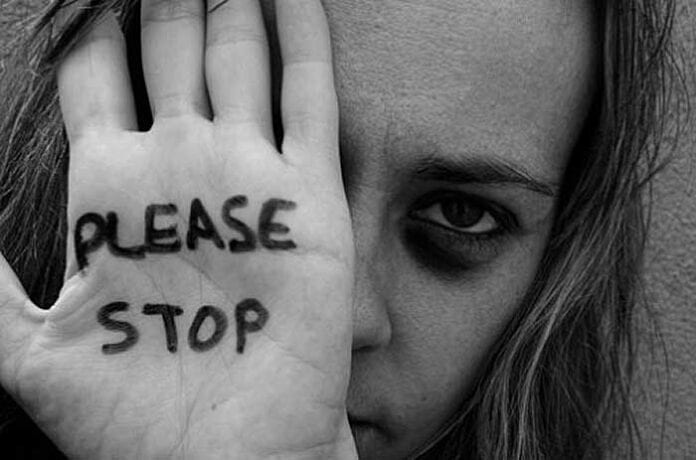
BY STEPHANIE JENSEN
Recently, several women have come forward and claimed they were victims of sexual abuse at the hands of their favorite musicians, many of them also adding they were underage.
The National Sexual Violence Resource Center states that one in five women are sexually abused. RAINN also reports that younger women are especially at risk. 82 percent of juvenile sexual abuse victims are female.
“THERE IS A LONG HISTORY OF SEXUAL ABUSE, MISCONDUCT, AND EXPLOITATION OF MINORS IN THE MUSIC SCENE.”
Sexual harassment, defined as unwanted sexual favors and advances, is prevalent in the music scene, with unwelcomed physical and verbal contact also included. NPR states that 81 percent of women experience sexual harassment.
Unfortunately, there is a long history of sexual abuse, misconduct, and exploitation of minors in the music scene. This predatory behavior weaved into the music industry and culture, telling the new generation of musicians that it’s acceptable to harass and abuse fans.
WHERE DID THIS BEHAVIOR ORIGINATE?
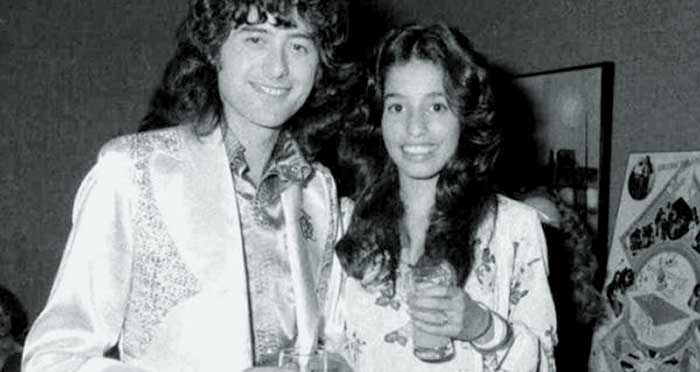
Iconic Led Zeppelin guitarist Jimmy Page used to date Lori “Maddox” Mattix, who was 14-years-old at the time, and before dating Page, Maddox had sexual relations with David Bowie. Jerry Lee Lewis married his 13-year-old cousin Myra Gale Brown when he was 22- years-old, and there was an account of Mötley Crüe members raping a woman in their biography, The Dirt, though bassist Nikki Sixx says he doesn’t remember that interview.
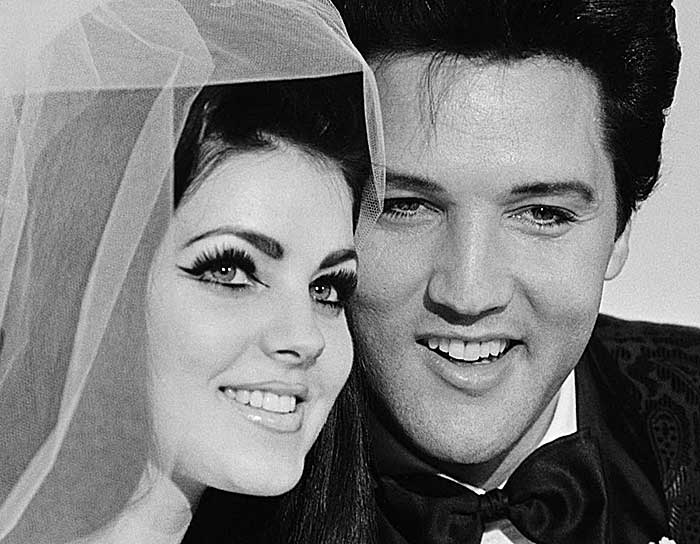
Does this kind of behavior truly have a beginning? Many people blame the King of Rock himself. Rock ‘n’ roll legend Elvis Presley was said to be fond of teenage women. He met his one and only wife, Priscilla Presley, when she was only 14-years-old and he was 24. He was attracted to her young age because he could “mold her into the perfect wife.” He also waited to have sex until they wed, not because it was the right thing to do, but because he wanted her to maintain her virginity—they married when she turned 21. Elvis had multiple affairs before they wed, and he would also bring other women into bed with them, and it’s unclear if Priscilla was into this or not. Priscilla eventually had an affair of her own, which led to Elvis raping her before they divorced.
But Mrs. Presley wasn’t his first underage girl. On tour, Presley was said to prey on teenage girls. He would sleep with fans while having a girlfriend back at home. Presley would even choose clothes for one girlfriend, Dixie Locke.
After he and Priscilla divorced, he preyed on another 14-year-old girl before entering a relationship with Ginger Alden, whom he abused.
And that’s not all. The King of Rock ‘n’ Roll was a voyeur and would spy on couples having sex during their lavish parties.
Many argue that his behavior was “okay” back then, but it wasn’t. Page had to hide his relationship with Maddox because she was a minor, Elvis was never seen in public with Priscilla when they first started dating, and other musicians had to become their underage significant other’s legal guardian in order to be in a relationship with them.
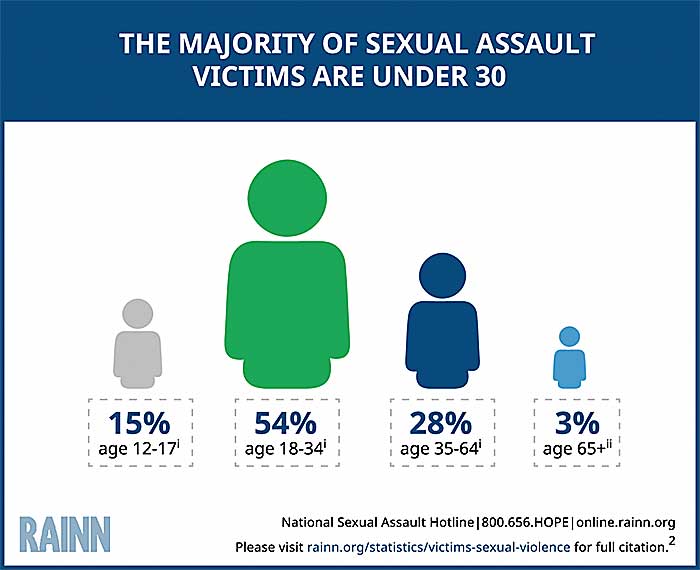
There are many reasons why artists of that time could get away with this inappropriate behavior.
1. There was no social media back then and word didn’t spread as quickly. Most of these activities were done behind closed doors, and if anyone knew about it, it was those who were closest to the artists and their fans. In other words, fans didn’t know their favorite musicians were pedophiles and their music became legendary long before word spread.
2. The women didn’t realize what the musicians were doing was wrong. Maddox has since spoken openly about her relations with Page and Bowie, stating all acts at the time were consensual. However, now that she’s older, Maddox says her perspective is changing.
3. Even when this type of information became public, fans chose to look away instead. “Separate the artist from the art.” While this concept is debatable, it holds a long history. People to this day still claim Elvis is a rock ‘n’ roll legend, despite the fact that he was abusive, courted underage girls, and was a drug addict.
“MOST FANS ARE NOW EDUCATED, UNDERSTANDING THE DIFFERENCE BETWEEN ACCEPTABLE AND UNACCEPTABLE INTERACTIONS”
Today, bands have more difficulties with getting away with this type of inappropriate behavior. It’s easy to screenshot messages and post them online. If a musician harasses a fan, the internet will know very quickly about it, and most fans are now educated, understanding the difference between acceptable and unacceptable interactions with artists.

SEXUAL ABUSE AND HARASSMENT IS A PROBLEM TODAY
There are definite parallels between the music scene and the psychology of predatory behavior.
Nothing Has Changed
“Times are different.” This is often the excuse that people give to brush off predatory behavior from iconic rock stars, but still within this culture lays exploitative actions. Rapper Tyga dated Kylie Jenner when she was 17. They made their relationship official in 2014, and they have since split.
A few things are different now. People who aren’t with the band or crew can’t access the backstage area in many venues. In the US and numerous other countries, minors are not allowed to drink at the show and re-entry isn’t allowed. Even some venues have strict rules that don’t allow minors to attend a show without a legal guardian.
“VENUES AND MANAGEMENT WERE VERY LENIENT ABOUT UNDERAGE FANS ATTENDING SHOWS AND PARTYING WITH THE BANDS.”
These guidelines may not directly be influenced by past predatory behavior, but after learning about accounts from teenage girlfriends and groupies in the 70s, it seems that venues and management were very lenient about underage fans attending shows and partying with the bands.
Entitlement
This source states that men’s entitlement to women is crucial in rape related behavior. This is often seen when workers are assaulted by their bosses and other institutional situations. Those in power—in this case, successful musicians who tour frequently—use their status to abuse vulnerable people, in this case, their fans. They will also target younger fans and those under the influence of drugs or alcohol.
In addition, this entitlement can prevent a victim from speaking out. Discriminatory double standards exist with sexual assault victims, who assume they won’t be believed or will be shamed and humiliated for reporting incidents.

Disregard for Consent
While any decent minded person will respect their partner’s wants and wishes, the vast majority of rapists, sex offenders, and other terrible people simply ignore and don’t care about consent.
Lack of consent may have something to do with what happens in the music scene. This study offers a mental assessment on rapists and includes a section on “cognitive distortions,” which are errors in cognition used to minimize certain perceptions and judgments. These cognitive distortions often perpetrate views of misogyny and justify a man’s “uncontrollable” sex drive.
This issue of cognition can easily infiltrate into the music scene, viewing fans as sex objects with the musician allowed to use them as they desire, regardless of their age and consent.
Sexual and Predatory Normalization
Sex, drugs, and rock ‘n’ roll. This idea seems more natural than the need to breathe. Unfortunately, this notion not only normalizes sex in the music scene but also predatory behavior.
“THIS NOTION NOT ONLY NORMALIZES SEX IN THE MUSIC SCENE BUT ALSO PREDATORY BEHAVIOR.”
Looking at the misogyny in the music industry, of course, we can blame the decades of song lyrics that sexualize women, scantily clad women appearing in music videos, and more. But what about metal? You don’t see half-naked women pole dancing in extreme metal music videos, but there are song lyrics that depict violent against women (VAW). While this may not directly influence rape and other violent acts, they can influence society’s view of women as weak and helpless. The linked example discusses VAW acts in movies and television, but the same ideas apply to the music scene.
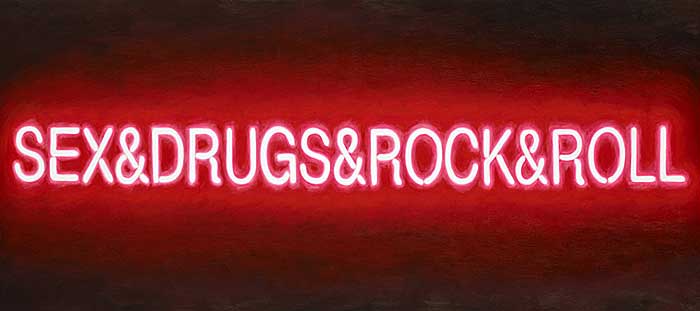
As a woman, this sexualized and victimized depiction in the media has never affected me as much as one major piece of misogyny: “Women can’t possibly listen to metal.”
If metal, hardcore, and other extreme forms of music are seen as a “boy’s club,” then why do women attend metal shows? There are some that believe a women must be only trying to have sex with the band members, but anyone with common sense knows this is not true. Sadly, this myth might explain why some concertgoers grope and assault women at shows. These same misogynistic views can delude an artist’s mind, believing women only attend their shows to have sex with the bands, not realizing she’s a fan of their music.
False Delusions of Sexual Openness
Music indulges in pleasure. Some people experience pure bliss when listening to a rock ballad. Others love headbanging to blastbeats or moshing at hardcore shows. Listening to music inspires us to act out our pleasures, which is why rock music culture is often associated with sexual openness and exploration.
“ROCK MUSIC CULTURE IS OFTEN ASSOCIATED WITH SEXUAL OPENNESS AND EXPLORATION.”
From accounts of groupies back in the 60s and 70s, many said that having sex with their favorite musicians was a turn on and even made them feel empowered. Unfortunately, at the other end of this spectrum, these pleasure centers can be a way to exploit fans, and this is why people may excuse the musician’s behaviors and think certain actions are okay.
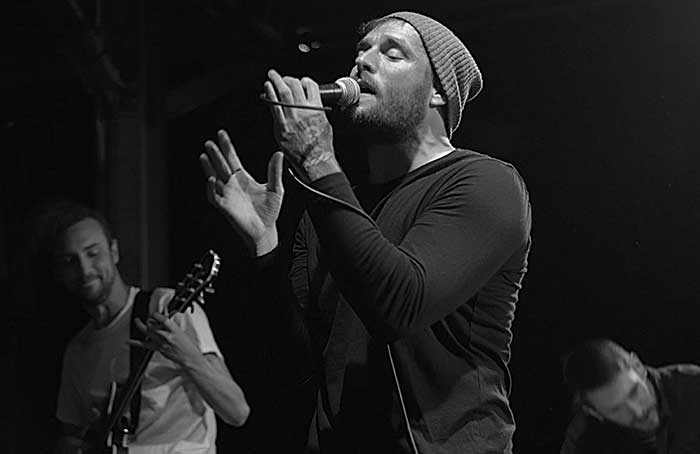
For example, Bradley Walden of Emarosa has been accused of grooming a minor. His victim made many claims, such as groping her breast. She states she passed the groping off as a “mistake.”
This sexualized culture tells fans that this behavior is okay and also conveys this message to predators. And this may be why many fans don’t come forward with their abuse.
Problematic Ideas of Masculinity
Behaviors associated with toxic masculinity come out in the largely male dominated rock, metal, and hardcore scenes. Historically, men used power and aggression to hold power. Some of these behaviors, including sexual entitlement, have been ingrained in men and women since childhood. Women also experience the pressures of toxic masculinity, as many victims don’t come forward with their allegations because they were taught the abuse was their fault. Many men in the scene are able to look past this indoctrination and change their behaviors, but others can’t break free from toxic and predatory masculinity.
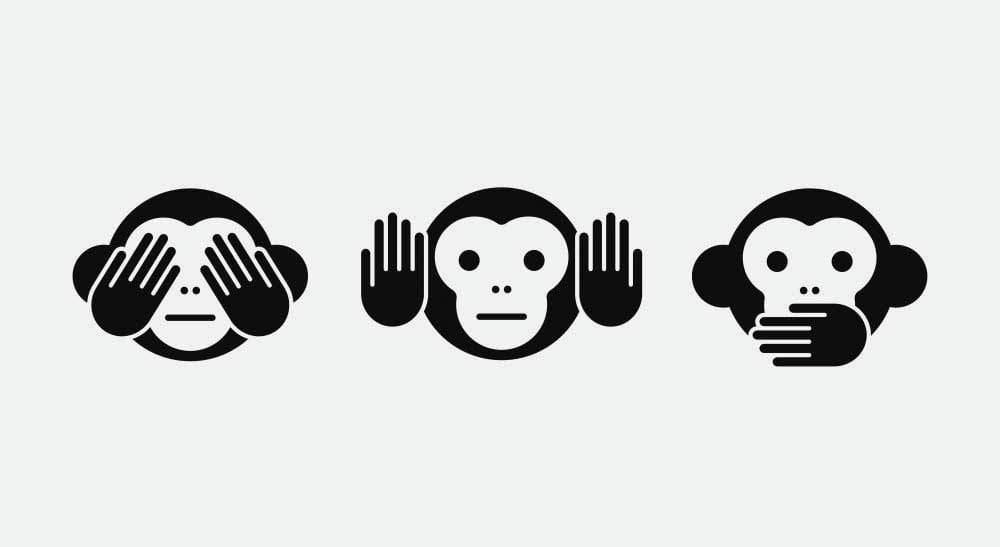
People Still Turn a Blind Eye
Sadly, predatory behavior is still a problem because people turn a blind eye. We may be used to the same practice of “see no evil, hear no evil, speak no evil.” In the music scene, people have turned a blind eye because their friend, band member, or a musician they idolize are the ones committing these predatory actions.
HOW TO COMBAT SEXUAL ABUSE AND PREDATORY BEHAVIOR
To prevent exploitation in the music scene, everyone has to work together to make shows and the music industry a safe space. Here are some suggestions to call out and dispose of the trash in the scene.
“EVERYONE HAS TO WORK TOGETHER TO MAKE SHOWS AND THE MUSIC INDUSTRY A SAFE SPACE.”
Calling Out Your Abuser
Calling out abusers in the scene is extremely important. You’re not only vocalizing their true character, but you are also warning others. The abuser will be held accountable, no matter how talented they are, how great their band is, or their position in the industry. At the same time, if you would rather be confidential about your abuse, you can state it anonymously or tell a small circle of trusted people—there’s nothing wrong with that. Or you stood up to your abuser and you feel that’s all you need to do. Do whatever you think is best for you and your situation.
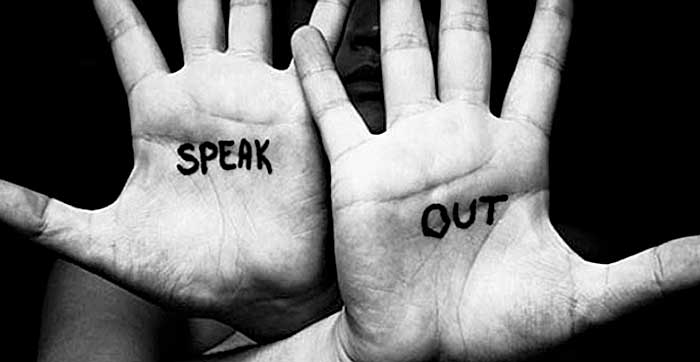
Calling Out Your Band Member
Calling out perpetrators can be difficult, especially if you’re not the one who’s been abused. Even more so, witnessing harassment, abuse, and/or predatory behavior from a band member can be difficult to address.
“WITNESSING HARASSMENT, ABUSE, AND/OR PREDATORY BEHAVIOR FROM A BAND MEMBER CAN BE DIFFICULT TO ADDRESS.”
As stated in the previous section, do what you think is right. You can address your band member personally, explaining what they did wasn’t appropriate and won’t be tolerated in the band. Some bands have been very vocal about these situations, kicking out band members and publicly addressing their actions. In the case where the abusive band member is the leader or founding member, you can also leave that band and explain that you won’t be affiliated with a group that condones predatory behavior.
If you don’t do or say anything, that’s your choice. Just know that you could help to make things better in our music scene by addressing the issue.
WHAT IF YOU’RE A MUSICIAN ATTRACTED TO A FAN?
Musicians not only travel the world but also meet people constantly. There will likely be a time when a fan approaches you and you may be attracted to her or him. We’re all human. You’re not a bad person for crushing on a crowd-goer, but at the same time, you shouldn’t practice predatory behavior.
There are ways to get someone’s attention without being a total perv. Start by taking your band and your music out of the conversation. Get to know the person, especially since they already know about you and your music. Be friendly, but always respect your fans and give them their space. From here, try to read the vibes of your fan. If things seem to be going well, give them your number or invite them to hang after the show. If they seem uninterested, don’t be pushy. Accept the rejection and move on.
WHAT IF YOU’RE A FAN ATTRACTED TO A MUSICIAN?
This article isn’t meant to tell fans they shouldn’t be attracted to musicians. There’s nothing wrong with dating a musician or hooking up with one, as long as all actions are consensual and everyone is safe.
“THERE’S NOTHING WRONG WITH DATING A MUSICIAN OR HOOKING UP WITH ONE, AS LONG AS ALL ACTIONS ARE CONSENSUAL AND EVERYONE IS SAFE.”
Just know if you’re a fan and haven’t met this person before, they may not have time to chat. Musicians are busy, especially when they’re on tour. They may only have time to play the show, load out their gear, and leave for the next town.
If you get the chance to spend time with a musician, there are ways to show how you feel without invading their space. Flirting might be appropriate, but not everyone may be comfortable with that. Since you’re the fan, strike up a conversation and show signs you’re attracted without touching them by making eye contact and using appropriate body language.
Even though musicians get the stereotype that they sleep around, understand you’re not entitled to a musician. Many have significant others back home or they may not simply be interested. Again, don’t be pushy and accept the rejection.
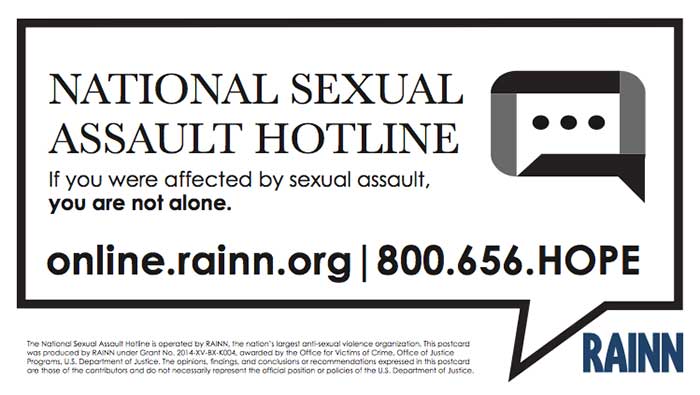
WHAT IF A MUSICIAN HARASSES OR ASSAULTS YOU?
Fans are being more vocal about the harassment or abuse they endure at the hands of musicians. Unfortunately, this doesn’t mean the behavior will stop. If there comes a time when a musician sexually harasses or even abuses you, it’s a good idea to know the options for how to handle it.
First and foremost, understand the victim is never to blame. This advice won’t be a BS “don’t dress a certain way” or “don’t drink at shows” section. Rather, it will help you be prepared mentally if you become a victim of abuse.
Stand Up for Yourself
If you can, stand up for yourself. Reject any advancements. Don’t send any pictures or videos that make you uncomfortable. If they grope you or attempt to assault you, fight back if you can and/or try to get help. Sadly, this isn’t always an option—especially if drugs or other substances are involved. If you don’t fight back, don’t feel guilty. Once again, it’s not your fault.
Inform Venue Security
Venue security is there for a reason—to protect everyone at the concert. If you’re experiencing any physical or verbal abuse from anyone in a band, inform venue security. Some will help, while others may not attentively listen. As an alternative, you can always inform the other band members, their tour manager, or find anyone in the venue with a tour laminate.
Use Social Media
Social media is a powerful tool when expressing sexual assault allegations, whether you publicly post about your experiences or send a message to the band.
There are many benefits of publicly stating your experiences. You may inspire other victims to speak out. You will also inform and warn other fans—some may even stop supporting the band altogether. Best case scenario, the band will kick out the abusive musician.

If you make your post public, understand it may be investigated or you might hear from the band, their management, record label, or lawyer. For example, Jonny Craig of Dance Gavin Dance threatened legal action against women who accused him of rape. In this instance, it’s beneficial to have a lawyer. You can also express your allegations anonymously online.
Report Your Abuser to the Police
Even though your abuser is a musician that you might idolize, understand that the law is on your side. You can report the abuser to the police. To report the assault, you can either call 911 or visit your local police station. If you receive a sexual assault forensic exam (also called a rape kit), you can report your perpetrator to the medical professionals. Keep in mind, if the assault happened several years ago, your state could have a statute of limitations.
Additional Safety Advice
Once again, any harassment or assault is never the victim’s fault. However, some common sense can prevent such an awful situation.
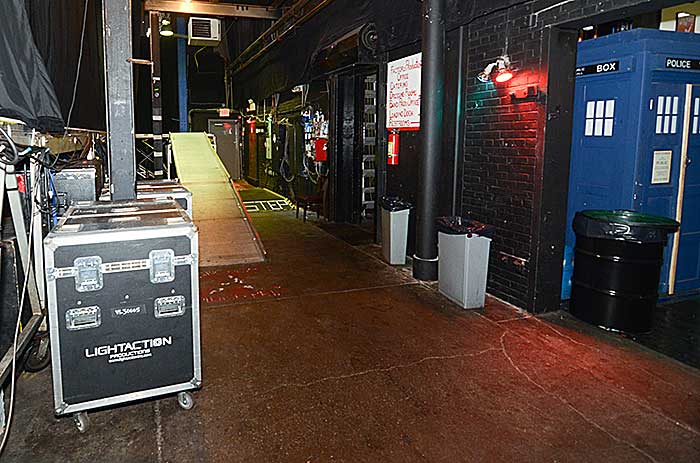
First, never go backstage or on a tour bus unless you already know the band or are working at the show. You should also tell a friend or family member where you are, whom you are with, and provide names, if possible.
If you want to hang out with the band, but don’t fully know them, find out if a trusted friend is able to accompany you. Never leave your drink unattended or accept drinks from strangers. If anything feels off or abnormal, decline any party or hang out invitations. Always have a way out and leave the situation if problems escalate. If necessary, you can always call 911.
LET’S MAKE THIS SCENE A SAFER PLACE
Many people have suffered harassment, assault, and more at the hands of well known musicians for decades. This has been going on for too long, but everyone can make a difference to be sure no one else gets hurt. Let’s call out the abusers and harassers at shows, and stop putting the blame on victims. We can make the scene a safer place, but we won’t be able to without everyone’s help.





















